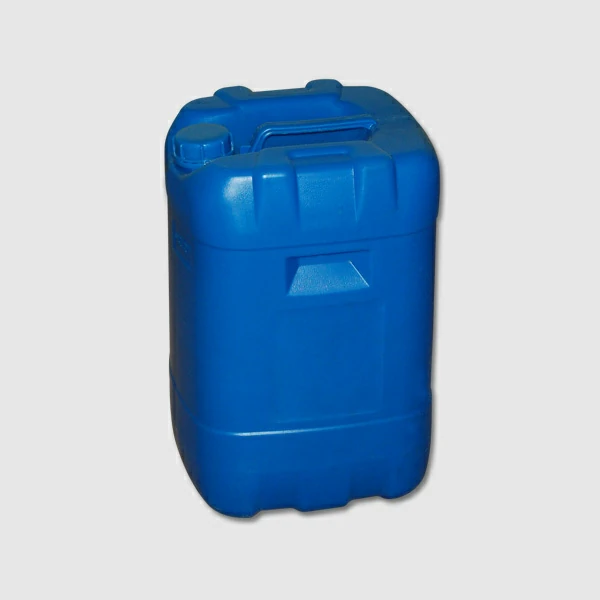DBU benzyl chloride ammonium salt can offer several benefits in plastic manufacturing processes:
- Catalyst for Polymerization: DBU benzyl chloride ammonium salt can serve as a catalyst in the polymerization of certain monomers used in plastic manufacturing. It helps initiate and accelerate polymerization reactions, leading to the formation of high molecular weight polymers with desirable properties such as strength, flexibility, and durability.
- Chain Extender: In some cases, DBU benzyl chloride ammonium salt can function as a chain extender in polymerization reactions, helping to increase the molecular weight and polymer chain length of plastic resins. This can improve the mechanical properties and performance characteristics of the resulting plastics, such as tensile strength and impact resistance.
- Crosslinking Agent: DBU benzyl chloride ammonium salt can act as a crosslinking agent in certain plastic formulations, facilitating the formation of chemical bonds between polymer chains. Crosslinking enhances the structural integrity and dimensional stability of plastics, making them more resistant to deformation, creep, and thermal expansion.
- Foaming Agent: In some plastic manufacturing processes, DBU benzyl chloride ammonium salt can be used as a foaming agent to introduce gas bubbles into the polymer matrix. This creates cellular structures within the plastic material, DBU benzyl chloride ammonium salt supplier resulting in lightweight foams with reduced density and improved insulation properties.
- Surface Modification: DBU benzyl chloride ammonium salt can be used to modify the surface properties of plastic materials, enhancing their adhesion, wetting, and compatibility with other substrates or coatings. This can improve the bonding strength and performance of plastic components in various applications, such as adhesives, coatings, and composites.
- Additive Compatibility: DBU benzyl chloride ammonium salt is compatible with a wide range of plastic resins and additives commonly used in plastic manufacturing, including polyethylene, polypropylene, polystyrene, PVC, and thermosetting resins. This versatility allows it to be incorporated into various plastic formulations without adversely affecting processing or performance.
- Environmental and Health Considerations: DBU benzyl chloride ammonium salt may offer advantages in terms of environmental and health considerations compared to alternative additives or catalysts. It is relatively low in toxicity and may have reduced environmental impact during manufacturing, use, and disposal compared to certain other chemicals used in plastic manufacturing processes.
Overall, DBU benzyl chloride ammonium salt can provide several benefits in plastic manufacturing, including catalysis, chain extension, crosslinking, foaming, surface modification, additive compatibility, and potential environmental and health advantages. Its versatility and effectiveness make it a valuable additive in various plastic formulations, contributing to the production of high-quality plastics with enhanced properties and performance characteristics.
How does DBU benzyl chloride ammonium salt affect the color properties of dyes and pigments?
DBU benzyl chloride ammonium salt, being a quaternary ammonium compound, may affect the color properties of dyes and pigments in several ways:
- Solubility Enhancement: DBU benzyl chloride ammonium salt can improve the solubility of certain dyes and pigments in solvent systems. By acting as a solubilizing agent, it helps dissolve the dye or pigment particles more effectively, leading to a more homogeneous solution or dispersion. This enhanced solubility can result in brighter and more vibrant colors, as the dye or pigment particles are evenly distributed and fully dissolved.
- Stabilization of Colorants: DBU benzyl chloride ammonium salt can stabilize certain dyes and pigments against degradation or aggregation. By forming complexes or coordination compounds with the colorants, it helps protect them from chemical reactions or interactions that could alter their color properties. This stabilization can help maintain the brightness, intensity, and stability of the colors over time, ensuring consistent performance in various applications.
- pH Adjustment: DBU benzyl chloride ammonium salt may affect the pH of the dye or pigment solution, which can influence the color properties of certain colorants. By adjusting the pH to an optimal range for the specific dye or pigment, it can enhance the color intensity, hue, and stability. This pH adjustment can also prevent undesirable color shifts or fading caused by changes in pH during processing or storage.
- Compatibility with Substrates: DBU benzyl chloride ammonium salt can improve the compatibility of dyes and pigments with substrate materials, such as fibers, plastics, or coatings. By promoting adhesion and penetration of the colorants into the substrate surface, it helps ensure uniform coverage and color development. China DBU benzyl chloride ammonium salt suppliers This compatibility enhancement can result in more vivid and durable colors, as the dye or pigment interacts more effectively with the substrate material.
- Dispersion Stability: DBU benzyl chloride ammonium salt can enhance the dispersion stability of pigments in liquid formulations, such as paints, inks, or coatings. By preventing pigment particles from settling or agglomerating, it helps maintain a consistent color distribution throughout the formulation. This dispersion stability ensures uniform color coverage and prevents issues such as streaking, blotching, or color separation.
Overall, DBU benzyl chloride ammonium salt can have a positive impact on the color properties of dyes and pigments by improving solubility, stabilizing colorants, adjusting pH, enhancing compatibility with substrates, and promoting dispersion stability. Its versatility and effectiveness make it a valuable additive in various colorant formulations, contributing to the production of vibrant and consistent colors in paints, inks, textiles, plastics, and other applications.

